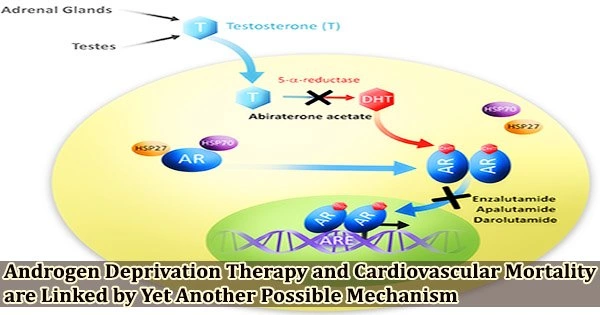In the US, prostate cancer is the most prevalent type of cancer in men. Androgen deprivation therapy (ADT), as the prostate is a testosterone-responsive gland, is the cornerstone of treatment in these men, with about 50% of prostate cancer patients beginning ADT within a year of diagnosis. This treatment reduces the growth of the tumour by inhibiting the production of testosterone.
ADT has a number of negative side effects, including an increased risk of cardiovascular disease and sudden death, even if it improves survival in a portion of these individuals. Unknown were the exact methods via which ADT might raise the risk of sudden death.
Now, a team of researchers from BWH has shed some light on this issue and their findings are published findings in the Journal of the Endocrine Society.
The time it takes for these cells to be able to contract again after each beat increased following ADT, and prolongation of this time is a known risk factor of ventricular arrhythmias. We are trying to piece together how ADT might be resulting in sudden deaths in some men.
Thiago Gagliano-Jucá
“We showed that ADT results in electrophysiological changes in the heart,” said first author Thiago Gagliano-Jucá, MD, PhD, a research fellow in the Section on Men’s Health at BWH. “The time it takes for these cells to be able to contract again after each beat increased following ADT, and prolongation of this time is a known risk factor of ventricular arrhythmias. We are trying to piece together how ADT might be resulting in sudden deaths in some men.”
The time it takes for heart cells (cardiomyocytes) to be able to contract again after an earlier contraction is known to be shortened by testosterone. On the electrocardiogram, this period is referred to as the QTc interval and is prolonged by decreased testosterone levels brought on by ADT.
This prospective study of more than 70 men discovered that, in comparison to men with prostate cancer who were not receiving ADT, those on ADT have a prolongation of their QTc interval duration.
Given the recognized link between QTc prolongation and an increased risk of arrhythmia, it is possible that some of these cardiac events are caused by ADT-induced QTc prolongation.
“Oncologists should monitor QTc interval in patients receiving ADT, especially those patients who are taking medications that also prolong QTc interval,” said Gagliano-Jucá.





